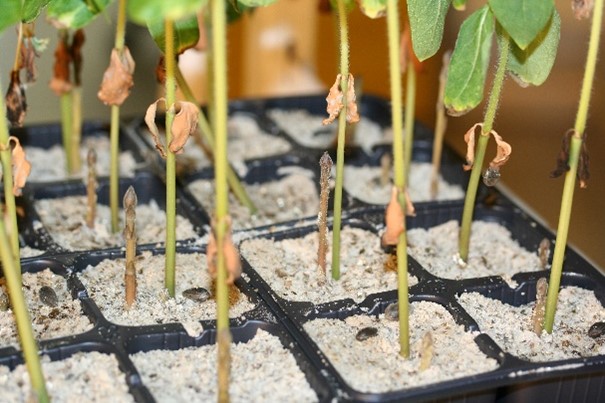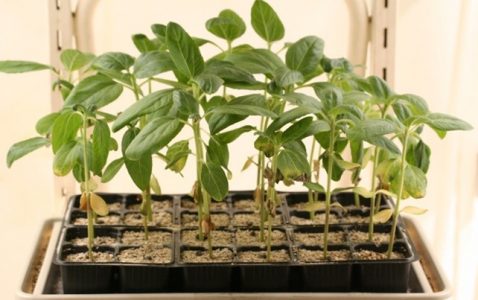|
Tools for distinguishing sunflower varieties against Orobanche cumana
France
April 5, 2022

Emergence of broomrape from sunflower roots
Orobanche cumana, also known as broomrape, is a parasitic plant that attaches itself to the roots of its host, in this case sunflowers. It has been present in France since 2007 and causes very serious damage to crops. The use of varieties that are genetically resistant to broomrape is still the most effective means of controlling it. The Ortobox project, financed by the "CASDAR Seeds and Plant Breeding” research program, began in 2019. It aims to characterise and reliably distinguish sunflower varieties with regards to broomrape in the framework of national listing. The tools worked on within the project focused on:
- development of a protocol for characterising the resistance of sunflower varieties to broomrape under controlled conditions;
- construction of a reference collection of Orobanche cumana populations which are representative of existing variability in the field;
- definition of a public and disseminable differential host set to ensure the conformity of Orobanche cumana races used for evaluation.
 Trial of co-cultivation of sunflower and cumana broomrape under controlled conditions Trial of co-cultivation of sunflower and cumana broomrape under controlled conditions
GEVES was heavily involved in the first action, and at the end of the project proposed a protocol for evaluating the susceptibility of sunflower varieties based on co-cultivation of sunflower seeds and Orobanche cumana in a sand/vermiculite substrate for 35 days. The results are positive, as they are comparable between laboratories and with results obtained in the field, mainly for varieties with extreme behaviour.
More solutions from: GEVES, Groupe d'Etudes et de contrôle des Variétés et Semences
Website: http://www.geves.fr Published: April 5, 2022 |